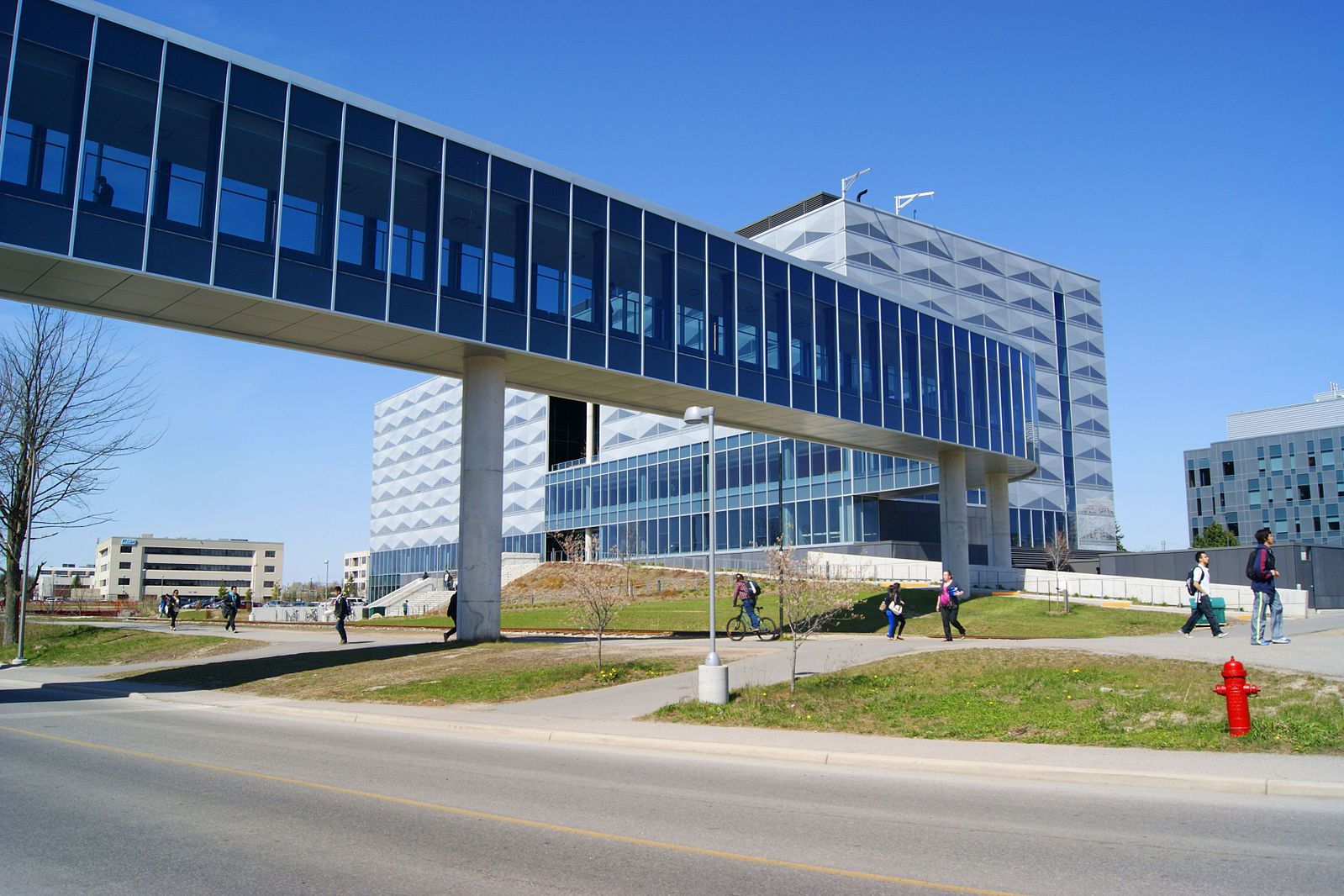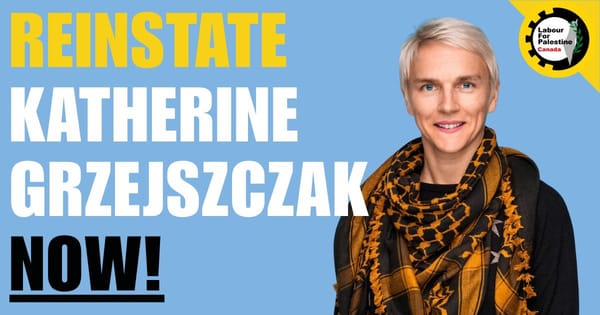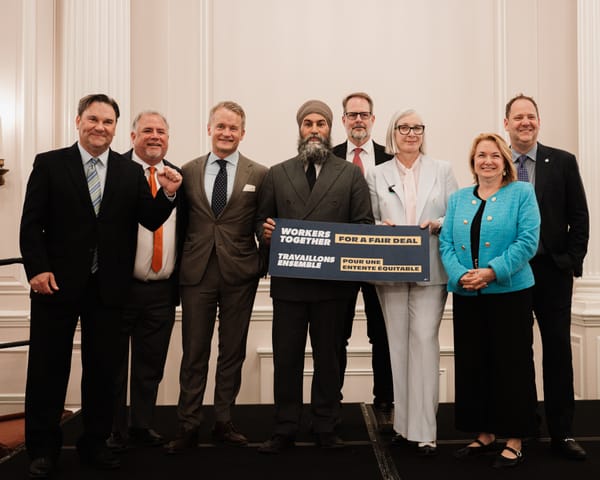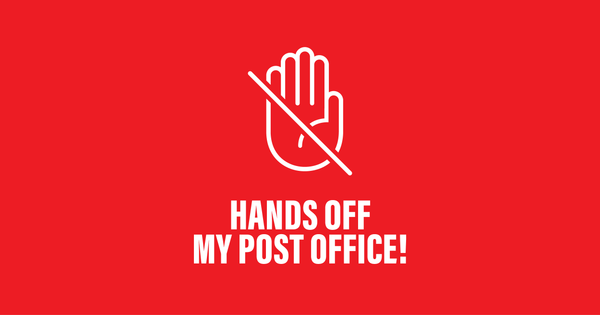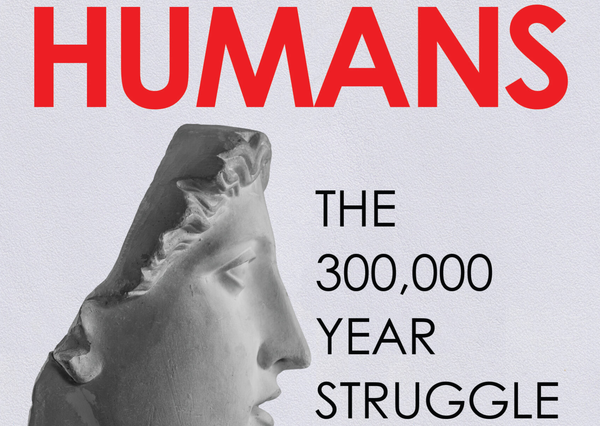
Workers at the University of Waterloo (UW) are organizing a union. Graduate teaching and research assistants, along with contract teaching faculty, are working through a campaign organization called OrganizeUW to bring collective bargaining to one of the only public universities where workers in these job categories aren’t already union members.
OrganizeUW launched the public phase of their union drive with the Canadian Union of Public Employees (CUPE) in July of 2020. CUPE, Canada’s largest public sector union, with more than 700,000 members, represents the vast majority of unionized workers in similarly situated jobs at other post-secondary institutions across the country. Moreover, CUPE Local 793 is already the bargaining agent of more than 500 other support staff at UW.
The UW Graduate Student Association, the only representative body of graduate students at the university, endorsed the union campaign in July 2020, followed by many other student organizations on campus.
“We’re one of the only universities in Canada where TAs, RAs and instructors are not union members, and the result has been a lot of unpaid work, unchallenged harassment, inconsistent application of rules and limited say over working conditions,” Lynne Sargent, a graduate student worker and member of the organizing committee said via CUPE’s announcement of the union campaign.
As Sargent explained in Imprint, the UW student newspaper, because UW graduate student workers and sessional instructors remain non-union, they earn far less than comparable workers at other universities. Teaching assistants, for example, get paid nearly $10 per hour less than their counterparts at other schools in Ontario. This leaves graduate students struggling to make ends meet, as teaching assistant contracts make up a sizable portion of many funding packages. UW’s funding leaves graduate student workers — on whom the university depends for a huge portion of its teaching and grading — living below the poverty line.
Although all universities increasingly rely on precarious graduate student and sessional instructor labour, workers at UW face additional challenges resulting from a lack of union protection. As Sophia Sanniti, a PhD candidate in the School of Environment, Resources and Sustainability and a member of the organizing committee, relayed to me: “Waterloo is an extremely neoliberalized institution that has fully embraced the quantity over quality, and profit over people mantra of austerity. It systematically individualizes student worker experience, commodifies and exploits our labour, and in doing so sacrifices the quality of education and research at the institution for the sake of financial gain.”
Lack of a union contract also creates additional hardships beyond low pay. Without a collective bargaining agreement to regulate teaching contracts, there’s effectively no way to police the number of hours workers are required to devote to any given course. While individual contracts ostensibly set hours, additional unpaid work is common. The university, departments or supervisors can effectively force overwork without union oversight.
Additionally, late or missing pay, harassment on the job, or other poor working conditions must be addressed individually without union representation and a collective bargaining agreement in place. In a sector where career advancement depends greatly on the recommendations of direct supervisors, a lack of collective voice generates heightened precariousness for graduate student workers, in particular. With no grievance process — a central pillar of any collective bargaining agreement — individual workers are left to try to rectify issues of unfair treatment or breaches of teaching contracts on their own.
Of course, there has been the added issue of health and safety during the various phrases of the pandemic. Schools across the country have moved between remote and in-person learning, causing mounting workloads and stressful teaching and preparation schedules for faculty and staff. Without a union with a seat at the table with university management to protect against overwork and to ensure safe working conditions, an ill-conceived return to work plan can be deadly. UW has effectively been downloading these health and safety responsibilities to professors acting in the roles of teaching supervisors.
The pandemic has also delayed many graduate students’ learning and research, often meaning that degrees will take longer to complete despite a lack of compensatory funding. According to Sanniti, “In the past two years students have received no tuition relief, no funding package extensions, and minimal research milestone extensions. Yet the University of Waterloo walked away from 2021 with a $117 million profit. How they expect their students to conduct rigorous and relevant research, and quality educational services, in the midst of COVID-19 worldwide lockdowns is beyond baffling.”
In the spring of 2021, OrganizeUW launched a survey to gauge the impacts of overwork on graduate student mental health. Unsurprisingly, the results showed that the vast majority of student workers felt their mental health had worsened since the start of the pandemic, with the burden disproportionately falling on international students and students with disabilities.
As Marvin Pafla, an international PhD student at the Cheriton School of Computer Science and union organizer with OrganizeUW, writes: “There is a strong discrepancy between what the university says and what it actually does, and we can’t fix the problem on our own. In order to negotiate successfully, graduate student workers need to work together with the support of a strong union that understands our unique challenges. Such changes include higher TA pay, better working conditions and health benefits, and mandatory breaks.”
Also in the spring of 2021, the university announced that they would raise TA pay from $33.89 to $45 per hour. However, as OrganizeUW pointed out, many TAs are unlikely to see any actual raise. This is because UW “claws back” scholarships or grants to offset wage increases.
The university can effectively take a portion of scholarships that graduate students are awarded through federal or provincial granting agencies. In fact, by reducing scholarships and making TA pay a greater portion of overall funding, affected graduate student workers end up with lower take home pay. This is because pay for teaching is subject to income tax and payroll deductions, whereas scholarships are not. Unionized graduate workers at other universities commonly have language in their collective agreements to prevent schools from engaging in these types of underhanded financial maneuvers.
However, as Sanniti also recounts, the pandemic helped spark the union drive, exacerbating problems that predated COVID-19 and creating an urgency to collectively do something about them.
The pandemic has, of course, altered the dynamics of the union organizing drive. Union campaigns are typically built through many fact-to-face interactions with fellow workers to win the necessary level of support to certify a union bargaining agent. For OrganizeUW, this work has moved almost entirely online, aside from brief moments when pandemic conditions have improved enough to allow for on-campus or other in-person outreach.
As Sanniti explained to me, “The campaign started merely a few weeks before worldwide lockdown measures in March 2020 … As a result, we have had to radically alter traditional organizing tactics that rely heavily on in-person one-on-one meetings, door knocking, pizza parties, etc. We have basically had to reinvent what union organizing looks like and experiment with new and innovative strategies to reach out to students located around the world during a time of unprecedented isolation.”
In Ontario, workers need to demonstrate the support of at least 40 per cent of a prospective bargaining unit by having workers sign union cards in order to file for a labour board supervised certification election. Seasoned union organizers will tell you that a much higher level of support is needed — perhaps as high as 70 per cent — to actually win the election.
Although the window of time between submitting signed cards and holding the vote is relatively short in Ontario, unions almost always lose support due to employer intimidation. Under pandemic conditions, supportive workers can instead sign electronic union cards. At this stage, OrganizeUW is still in the process of gathering signed union cards and has not filed for a certification vote.
As Sanniti concludes, “The University has a lot to lose from a unionization campaign. That is why they systematically perpetuate the messaging of going ‘beyond innovation,’ touting the unique and independent nature of the institution as being so much different than the common university. This is the very messaging we confront daily in our own campaign, when we hear comments like ‘a union isn’t appropriate for UWaterloo.’ If nearly every other post-secondary institution has one, why not Waterloo?”
Indeed, it’s past time that graduate workers and contract faculty at UW had the power of a union behind them.


